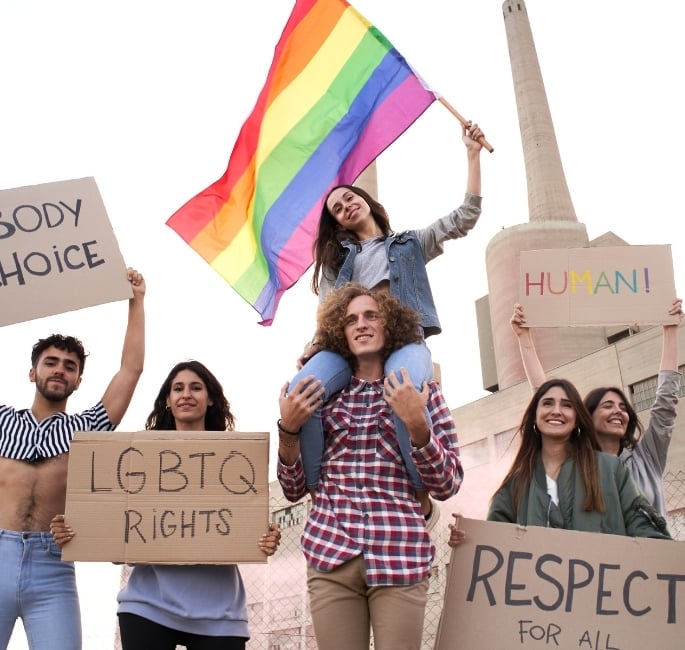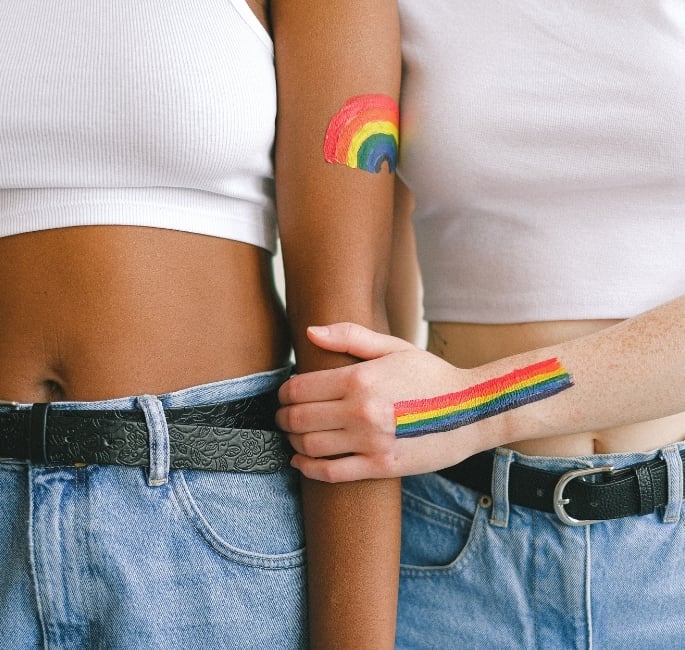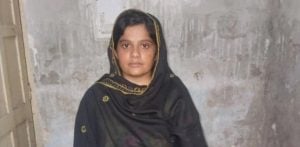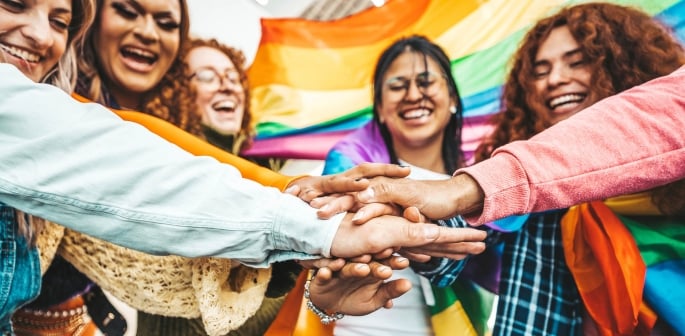Safe spaces and peer groups encourage confidence.
For many South Asian students, university is more than a place of academic growth.
It becomes the first opportunity to live independently, away from family supervision and cultural expectations.
This separation allows young people to reflect and embrace their identities without constant fear of judgment.
For queer South Asians, the move is particularly significant because conversations about sexuality and gender are often silenced at home.
The fear of rejection, emotional abuse, or even violence makes coming out in family settings unsafe.
By contrast, university provides a supportive environment where diversity, independence, and acceptance are celebrated, creating safer opportunities for self-expression.
In this context, many South Asians find the courage to come out for the first time.
Cultural Pressures versus Campus Freedom
 Within South Asian families, strict cultural and religious values often dictate silence around LGBTQ+ identities.
Within South Asian families, strict cultural and religious values often dictate silence around LGBTQ+ identities.
Concerns about family honour and reputation intensify the pressure to conform, discouraging young people from being open about their sexuality.
Many queer South Asians fear consequences ranging from emotional rejection to forced marriage, creating environments where hiding their identity feels like the only option.
University life changes this dynamic by reducing the influence of cultural and familial control.
Living away from home lessens immediate pressures and allows students to embrace independence without the constant watch of family and community.
This separation creates a window where identity exploration feels safer and more manageable.
For many, this contrast between cultural expectations and campus freedom makes university the first place where coming out feels possible.
Safe Spaces and Peer Support
 University campuses expose students to diverse perspectives, with LGBTQ+ societies and advocacy groups often central to this shift.
University campuses expose students to diverse perspectives, with LGBTQ+ societies and advocacy groups often central to this shift.
These communities provide safe spaces where South Asians can share experiences without fear of judgment.
Peer support plays a vital role, offering emotional reassurance, role models, and friendships that validate their identities.
Informal friendship circles also create everyday moments of acceptance, countering years of silence faced at home.
In these settings, students begin to build confidence, self-esteem, and resilience.
The combination of formal support networks and casual peer groups allows queer South Asians to come out in environments where they feel understood and valued.
This support system often extends beyond campus, shaping long-term empowerment and authenticity.
Identity, Wellbeing, and Cultural Affirmation
 Remaining closeted within restrictive cultural settings can harm mental health, leading to stress, anxiety, and depression.
Remaining closeted within restrictive cultural settings can harm mental health, leading to stress, anxiety, and depression.
University provides a crucial escape by linking identity exploration with well-being support through counselling services and mental health initiatives.
These resources help normalise conversations about sexuality and encourage healthier approaches to self-expression.
Student-led groups also create spaces where South Asians can celebrate both their cultural heritage and LGBTQ+ identity together.
By organising festivals, discussions, and cultural events, they challenge the notion that individuals must choose between being queer and being South Asian.
This dual affirmation fosters pride, resilience, and confidence, enabling students to leave university with stronger identities.
The connection between identity, well-being, and cultural pride becomes a transformative part of the coming-out journey.
Advocacy, Resources, and Lasting Change
 Beyond peer support, many university groups focus on advocacy and education.
Beyond peer support, many university groups focus on advocacy and education.
They challenge stereotypes, campaign for inclusivity, and provide ally training that makes campuses safer for LGBTQ+ students.
By raising awareness, these groups also influence attitudes beyond academic spaces, sparking important conversations in wider South Asian communities.
Resource sharing is another key aspect, with societies connecting students to safe housing, mental health services, and legal protections that are often overlooked in mainstream organisations.
Partnerships with external networks ensure that support continues beyond graduation.
These initiatives create lasting change by empowering South Asian students to live openly while advocating for broader acceptance.
Through these efforts, universities become not only safe spaces for coming out but also catalysts for long-term progress.
University often represents the first real opportunity for South Asians to live authentically and openly.
Away from cultural and familial pressures, students find independence, diversity, and support networks that allow them to explore their identities safely.
Safe spaces and peer groups encourage confidence, while mental health resources and cultural affirmation provide the tools for long-term resilience.
Advocacy and resource sharing extend the impact, ensuring lasting change that extends beyond campus walls.
This transformative environment empowers queer South Asians to embrace both their heritage and their sexuality without compromise.
For many, university is not only an educational milestone but also the beginning of a life lived with authenticity and pride.






























































